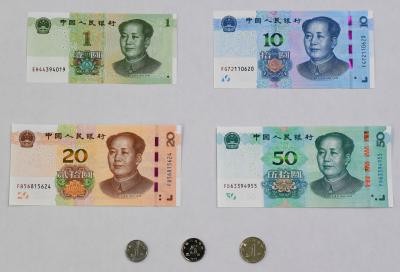
Karachi, The central banks of Pakistan and China have signed a memorandum of understanding (MoU) on setting up yuan clearing arrangements in the South Asian country to increase the Chinese currency's usage for cross-border transactions.
The MOU was signed by State Bank of Pakistan (SBP) Governor Jameel Ahmad and his counterpart at the Peoples Bank of China Yi Gang, The News reported.
"The establishment of the yuan clearing arrangement in Pakistan will further boost usage of yuan for cross-border transactions among Chinese and Pakistani enterprises and financial institutions," the SBP said.
It would also promote bilateral trade and investment between the two countries, it central bank added.
The MoU was signed during Prime Minister Shehbaz Sharif's two-day visit to Beijing.
According to analysts, the mechanism will lessen Pakistan's dependency on US dollars for bilateral transactions and ease the pressure on the country's external account, The News reported.
"I think it's a great move and beneficial for trade and investment. It will also reduce reliance on the US dollar for bilateral transactions," said Mustafa Mustansir, head of research at Taurus Securities.
The yuan clearing arrangement is nothing new to Pakistan as the country has had a currency swap agreement with China since 2011.
But it's not on large scale for trade purposes.
Fahad Rauf, head of research at Ismail Iqbal Securities, sees the agreement as a positive development, and said that China is a major trading partner for Pakistan.
The collaboration would further improve bilateral relations, he added.
"Once fully implemented, the reliance on dollars will reduce, which will lower the burden on our external account," The News quoted Rauf as saying.
He was of the view that it would also allow Chinese investors to invest more freely in Pakistan's markets.
On the other hand, Pakistan would be able to raise debt from Chinese markets, he stated.
China's President Xi Jinping said his country will continue to assist Pakistan in restoring stability to its finances, according to media reports.
As part of the $65 billion China-Pakistan Economic Corridor, Beijing has been involved in significant mining and infrastructural projects in Pakistan, notably the deep-water Gwadar port.


.jpeg)

